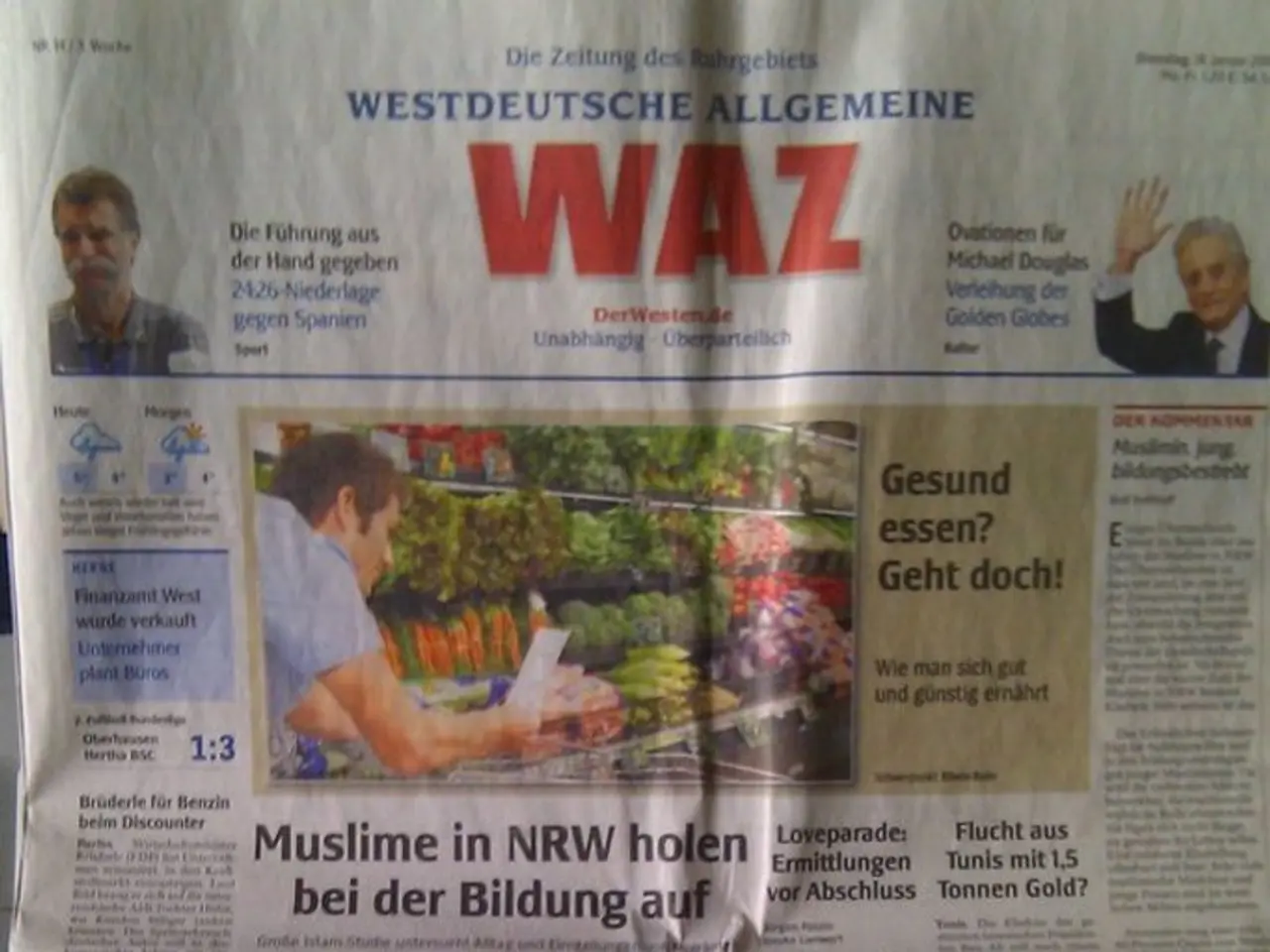Economic discussions held in the Kremlin by Vladimir Putin may have led to a potential decrease in inflation rates, dropping to approximately 6-7%.
During an economic meeting held within the hallowed halls of the Kremlin on August 12, 2025, President Vladimir Putin gathered key economic officials to discuss Russia's economic plans and challenges.
The meeting, which took place in a narrow circle, was attended by Prime Minister Mikhail Mishustin, Maxim Oreshkin (Deputy Head of the Presidential Administration), Maxim Reshetnikov (Minister of Economic Development), Anton Siluanov (Minister of Finance), and Elvira Nabiullina (Central Bank Governor). The gathering was closed to the media.
The federal budget for 2026-2028 was a central topic of discussion. Putin underscored that the budget is the country's main fiscal document, focusing on strategic issues such as improving citizens' quality of life, developing social spheres and infrastructure, and strengthening national defense capabilities. He emphasized that drafting the budget is a complex task involving economic, financial, and political considerations, including coordination with Parliament and parliamentary parties.
Putin also suggested discussing the general state of the domestic economy and its main trends, including a specific review of the federal budget's execution for that year. He emphasized the government's and Central Bank's joint task of returning the economy to balanced growth, primarily through curbing inflation while maintaining low unemployment.
Inflation has been a concern for the Russian economy, with figures showing a decrease from 10.3% year-on-year in March to 8.8% by the end of July. By the end of the year, consumer price dynamics may be within the 6-7% range. However, during this meeting, Putin did not provide any new inflation figures or projections.
Another issue on the agenda was the labor market. Putin highlighted the importance of balancing inflation control with keeping unemployment steadily low, but no explicit points regarding labor shortage or hidden unemployment were published in the official summary of the meeting.
The meeting also touched upon economic and geopolitical risks, including the global market situation. Putin indicated that the budget preparation requires accounting for these risks, though he did not specify particular risks in detail.
In a positive note, the share of enterprises with a labor shortage is decreasing, and the Bank of Russia is monitoring the situation and does not see any major risks at the moment.
In summary, President Putin's remarks focused on the comprehensive and strategic nature of the upcoming federal budget, emphasising social development, infrastructure, and defense, alongside the dual priorities of controlling inflation and sustaining low unemployment to return to balanced economic growth. Detailed discussions of labor shortage and hidden unemployment were not explicitly outlined in the official record.
- The discussions during the economic meeting held in the Kremlin on August 12, 2025, involved not only the drafting of the federal budget for 2026-2028 (finance), but also strategic issues pertaining to improving the quality of life of citizens, developing social spheres and infrastructure, and strengthening national defense capabilities (business).
- The meeting, which involved key economic officials such as Anton Siluanov (Minister of Finance) and Elvira Nabiullina (Central Bank Governor), underlined the importance of coordinating the budget preparation with Parliament and parliamentary parties, demonstrating the interplay between politics and the country's economic planning (politics and general-news).





